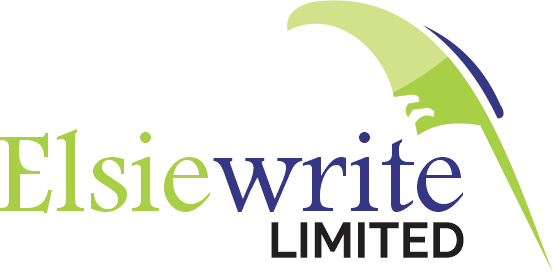Writing a book is an incredibly rewarding journey, but it can also be overwhelming, especially for new authors. Between crafting compelling stories, understanding the publishing process, and building an audience, there’s a lot to learn along the way. Whether you’re working on your first novel, memoir, or non-fiction book, here are five essential things every new author should know to help you navigate your journey with confidence.
1. Writing Is Rewriting
One of the biggest myths about writing is that great authors produce perfect prose on the first try. In reality, the first draft is just the beginning. Drafting is all about getting your ideas onto the page, even if they’re messy. Your first draft will likely have plot holes, underdeveloped characters, and sentences that don’t quite land the way you imagined. This is entirely normal and a crucial part of the writing process.
Why Rewriting Matters:
Rewriting allows you to dig deeper into your story and characters, improve pacing, and clarify your message. Think of it as sculpting a piece of art—each revision refines and shapes your book until it’s exactly how you want it to be.
How to Approach Rewriting:
- Step Back: After finishing your first draft, take a break. Let it sit for a few weeks to gain some perspective before diving back into revisions.
- Focus on the Big Picture First: Start with structural edits. Look at plot, pacing, and character arcs before diving into sentence-level changes.
- Embrace Feedback: Whether from beta readers, critique partners, or professional editors, external feedback can highlight issues you may not have noticed.
Revisions can be challenging, but they’re where your book truly comes to life.
2. Understanding Your Audience Is Key
Knowing who you’re writing for will guide everything from your tone and style to your marketing efforts. Every book has a target audience, and understanding this audience helps you craft a story that resonates with them and ensures your book reaches the right readers.
Why Audience Matters: Books are successful when they connect with readers on an emotional or intellectual level. Understanding your audience’s preferences and expectations helps you create a reading experience that feels personalized and engaging.
How to Identify Your Audience:
- Genre Research: Look at other books in your genre and identify who reads them. For example, young adult fiction has different expectations than adult literary fiction.
- Reader Profiles: Create a profile of your ideal reader. Think about their age, interests, challenges, and what they might be looking for in a book.
- Online Communities: Join online groups, forums, and social media communities related to your genre to understand what readers enjoy and what they’re looking for.
Once you have a clear idea of your audience, you can shape your writing and marketing strategies to reach them effectively.
3. The Importance of Building a Platform
In today’s publishing landscape, having an author platform is essential. Whether you’re self-publishing or aiming for traditional publishing, a platform gives you direct access to potential readers and establishes your presence in the literary community. Your platform can be a mix of a website, social media profiles, an email list, and connections with other authors.
Why Building a Platform Matters: Having an established audience before your book launches can significantly boost its chances of success. A platform allows you to build relationships with readers, connect with influencers in your genre, and promote your work effectively.
Steps to Build Your Platform:
- Create a Website: A simple author website with a bio, blog, and contact information can serve as a home base for your online presence.
- Social Media: Platforms like Instagram, Twitter, and Facebook are valuable tools for sharing updates, connecting with readers, and joining writing communities.
- Email Newsletter: Start an email list early. Even if you don’t have many subscribers yet, email allows you to communicate directly with your most dedicated fans.
- Collaborate with Other Authors: Engaging with other authors in your genre can open up opportunities for cross-promotion and introduce you to a wider audience.
Building a platform takes time, but starting early will help you establish a loyal readership by the time your book is ready to launch.
4. Publishing Is Just the Beginning
Many first-time authors think that once they’ve finished writing and publishing their book, the hard work is over. In reality, publishing is just the beginning of your journey as an author. Once your book is out in the world, promoting it and engaging with readers is an ongoing effort.
Why Post-Publication Efforts Matter: To reach more readers and achieve success, consistent marketing and promotion are essential. Books rarely sell themselves, so you’ll need to continue building awareness through events, online engagement, and strategic marketing.
Ways to Keep Momentum Going After Publishing:
- Book Launch Events: Host a launch party or virtual event to celebrate your book and generate buzz.
- Author Appearances: Schedule book signings, readings, or speaking engagements to connect with readers in person or virtually.
- Stay Active on Social Media: Share updates, reviews, and behind-the-scenes content to keep readers engaged.
- Ask for Reviews: Reviews are crucial for book sales, so encourage readers to leave honest reviews on platforms like Amazon and Goodreads.
Remember, the life of a book doesn’t end after its release. Ongoing engagement and promotion are crucial for building a lasting readership and generating word-of-mouth recommendations.
5. Don’t Be Afraid to Ask for Help
Writing a book is a significant undertaking, and no author should feel they have to go it alone. Whether it’s writing, editing, design, or marketing, reaching out for support can make the process smoother and more enjoyable.
Why Asking for Help Is Important: Writing and publishing a book involves a wide range of skills. Seeking help from professionals or connecting with other authors and readers can provide valuable insights, improve your work, and help you avoid burnout.
Types of Support Available to Authors:
- Editors: Professional editors can help improve your manuscript at every level, from story structure to line edits and proofreading.
- Beta Readers and Critique Partners: These readers provide early feedback, offering insights into what’s working and what needs improvement.
- Cover Designers and Formatters: Visual presentation is crucial for attracting readers, so hiring a professional cover designer and book formatter can make a big difference.
- Author Communities: Joining writing groups, both in person and online, allows you to share ideas, ask questions, and build a support network.
No author succeeds alone. Embracing support from others can lead to a more polished book and a more rewarding experience.
Final Thoughts
Writing your first book is an exciting, challenging journey. By embracing the rewriting process, understanding your audience, building a platform, planning for post-publication efforts, and asking for help when needed, you’ll be well-prepared to tackle the unique challenges that come with being a new author. Remember, every successful writer was once where you are now—taking it one step at a time, learning, and growing. Writing a book is a labor of love, and with persistence and preparation, you’ll create something that resonates with readers and makes a lasting impact. So keep going, and enjoy every step of your journey to becoming a published author!

